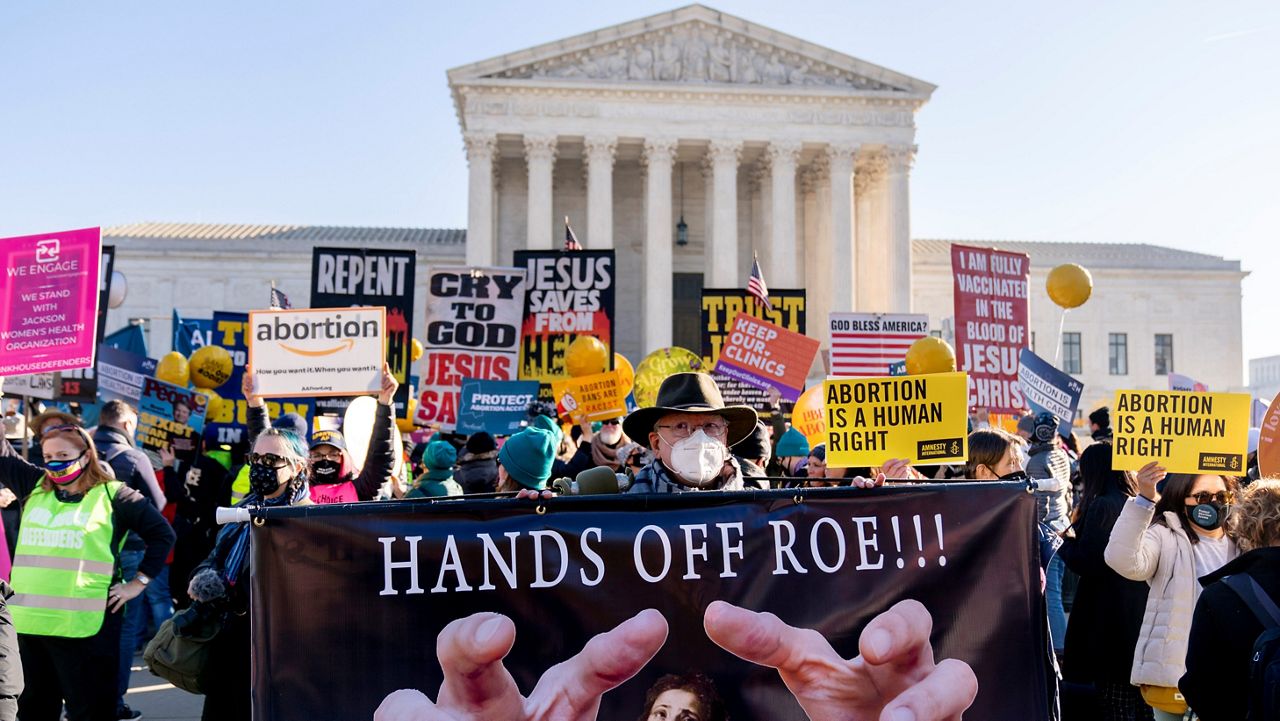LOUISVILLE, Ky. — With the Supreme Court’s decision in Dobbs v. Jackson overturning Roe v. Wade, abortion has come to an abrupt end in Kentucky.
That’s because lawmakers prepared for this.
“Kentucky is one of three states that has a trigger ban on the books that will go into effect immediately if Roe is overturned,” Elizabeth Nash with the Guttmacher Institute, a research organization that favors abortion rights, said prior to the release of the decision Friday. “Like Louisiana and South Dakota, the consequences for performing an abortion are severe and the life exception only applies in very few cases.”
The trigger law Nash is referring to was signed into law in 2019 by then-Gov. Matt Bevin. The text of the law says it will only go into effect following a “decision of the United States Supreme Court which reverses, in whole or in part, Roe v. Wade, 410 U.S. 113 (1973), thereby restoring to the Commonwealth of Kentucky the authority to prohibit abortion.” In the decision released Friday, the court writes: "The Constitution does not confer a right to abortion; Roe and Casey are overruled; and the authority to regulate abortion is returned to the people and their elected representatives."
Now, because of the trigger law, anybody who administers an abortion in Kentucky is guilty of a class D felony, which is punishable by as many as five years in prison.
"This bill will reflect what I think are Kentucky values," Rep. Joe Fischer, a Republican from Fort Thomas and the primary sponsor of the legislation, prior to its passage in 2019. "It will protect all human life from the moment of conception."
Tamarra Wieder, Kentucky State Director with Planned Parenthood Alliance Advocates, confirmed that the organization's abortion clinic in Louisville, one of only two in the state, will stop performing abortions “the minute the decision comes down in Dobbs v. Jackson.”
Kentucky is one of 13 states with a trigger law, according to the Guttmacher Institute. But it is only one of three where the ban goes into effect immediately upon the overturning of Roe. In three other states, including Tennessee, the ban goes into effect 30 days after such a decision. In the rest of the states with trigger laws, the governor, attorney general, or another official must certify that Roe has been overturned before the ban goes into effect.
Unlike some of the other “trigger” laws, Kentucky’s does not include exceptions for those seeking an abortion after rape or incest. Nor does it allow abortion for fetal anomalies. It does, however, allow an abortion to “prevent the death or substantial risk of death … or to prevent the serious, permanent impairment of a life-sustaining organ.”
With the overturning of Roe, the Guttmacher Institute suggests that all but two of Kentucky’s bordering states would now move quickly to ban abortion. That would leave Virginia and Illinois as the two closest states to Kentucky with legal abortion. As a result, anyone in Kentucky seeking an abortion would be forced to drive an average of 245 miles.
Planned Parenthood is prepared to help with that with a move toward what Wieder called “navigation.”
“We have a new team at Planned Parenthood that is focused specifically on navigation — to help support patients through the process and linking them to abortion funds and practical support to assist with the travel that is is going to be a reality for all of Kentuckians seeking an abortion care,” she said.
Wieder listed several other groups doing the same work and said, even though abortion cannot be performed in Kentucky, Planned Parenthood will remain a resource to those in need. “The doors stay open,” Wieder said. “The fight continues.”









